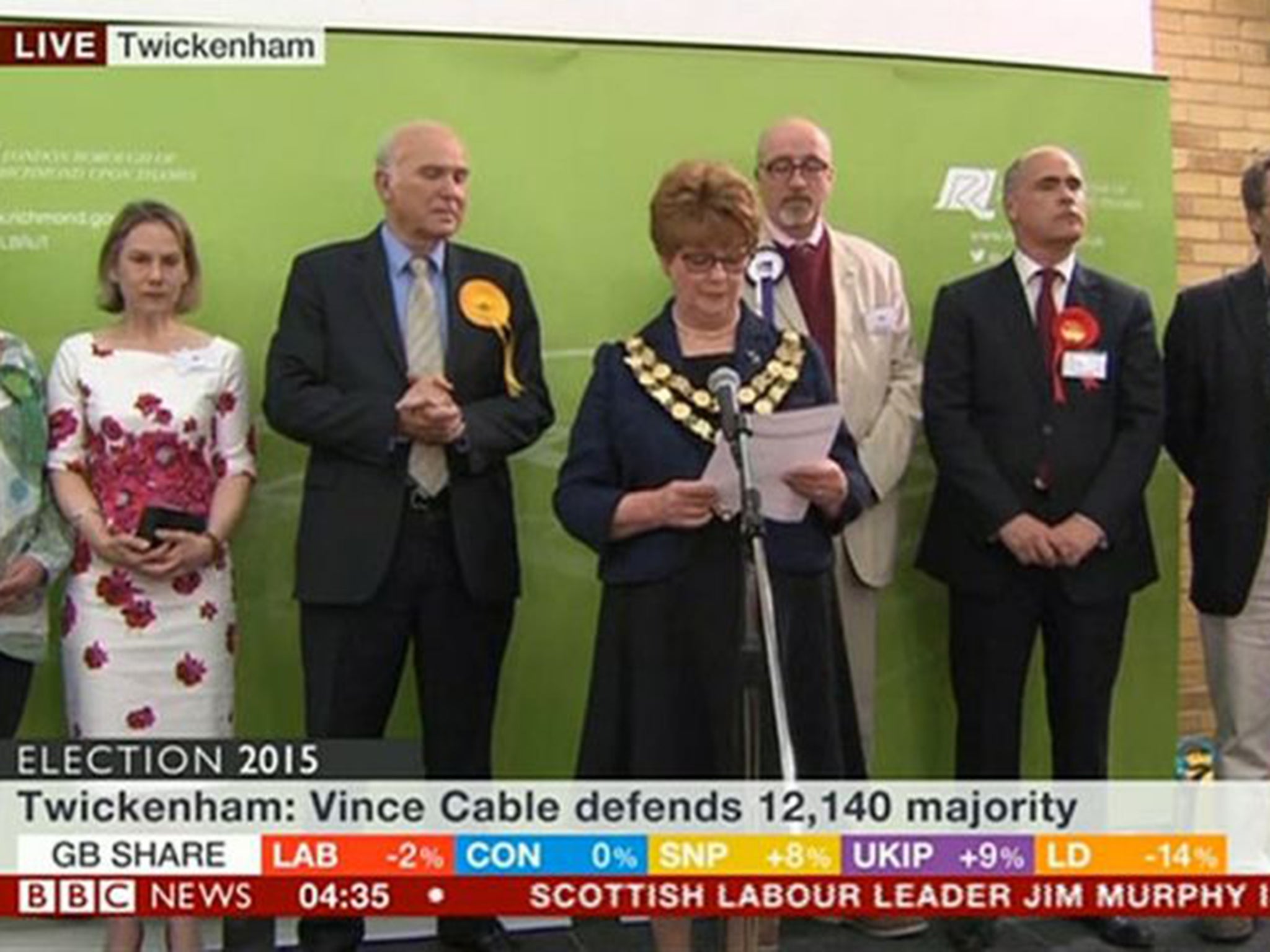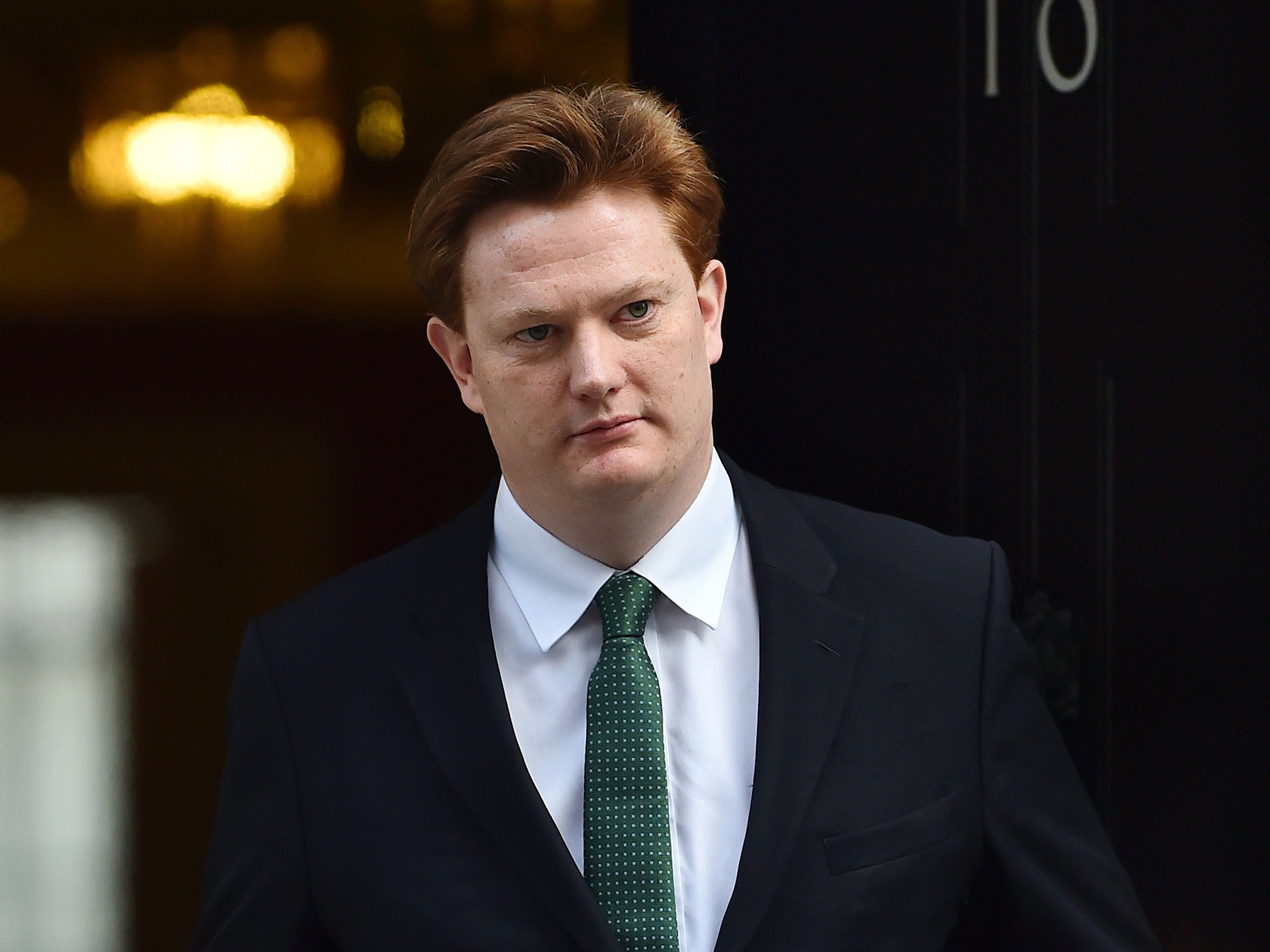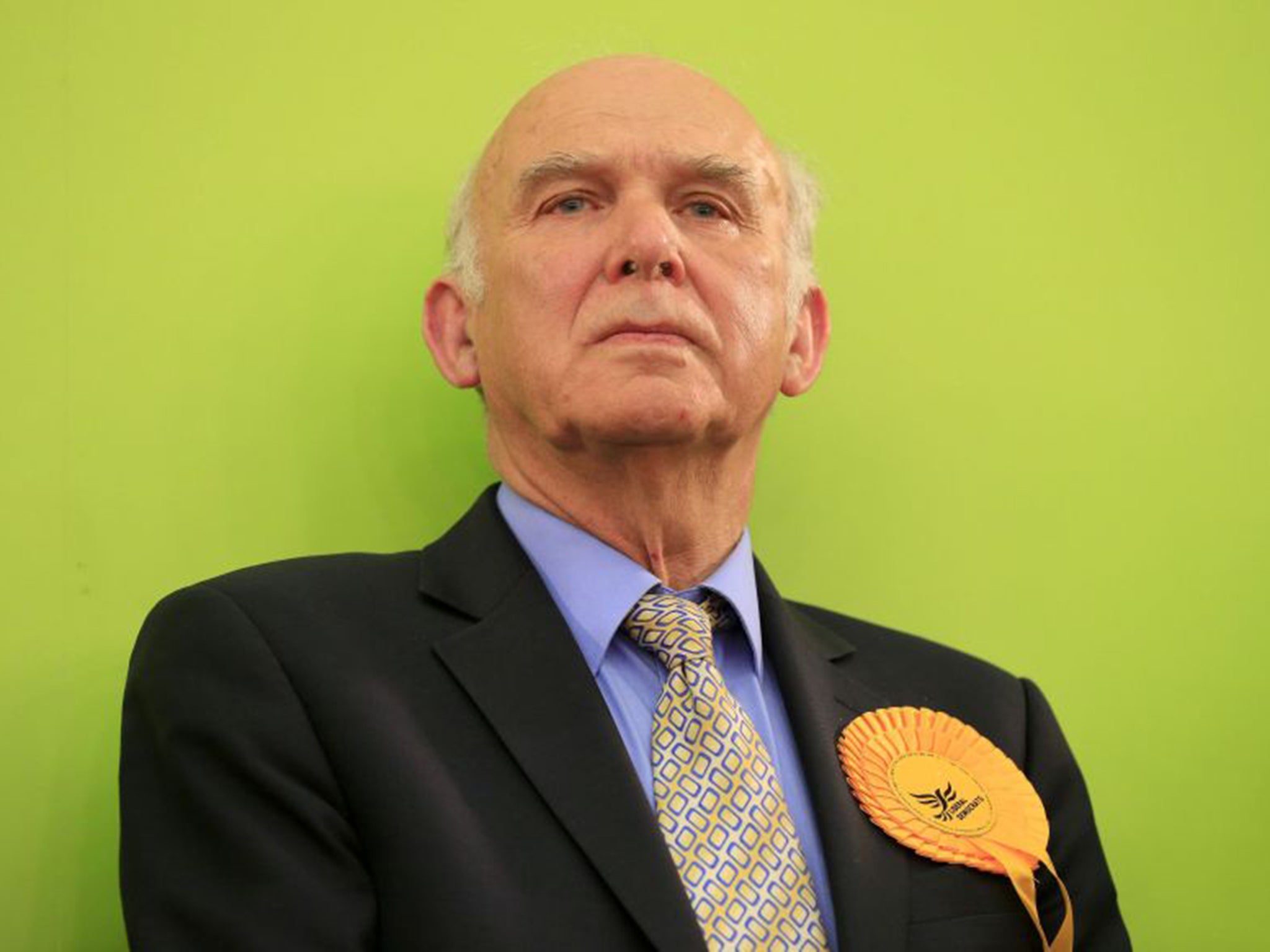Lib Dem post-mortem blames general election meltdown on 'utterly ruthless' Tory tactics
The party was left with just eight seats in their worst result since 1970

An “utterly ruthless” operation by the Conservatives to gobble up seats held by their coalition partners caused the Liberal Democrats’ meltdown at the May general election, the Lib Dems’ inquest into their disaster will find.
Nick Clegg’s hopes that the popularity of his 57 MPs locally would enable half of them to hold their seats, were swept away by a national tide which left the Lib Dems with just eight seats in their worst result since 1970.
The post-mortem into what the party admits was a “catastrophic” result will be discussed by the Lib Dem conference in Bournemouth on its opening day on Saturday.

James Gurling, who was a close friend and brother-in-law of the former party leader Charles Kennedy, has promised a “full and frank” review after being asked by Mr Clegg to see what lessons can be learned. However, the conference debate will take place behind closed doors, the only session from which the media and public will be excluded during the five-day gathering. “The key question is why no one saw the Tory attack on us coming,” said one leading grassroots activist. “Everyone is pointing the finger at someone else.”
The review will not be completed until later this year. It is expected not to direct blame at Mr Clegg or Lord (Paddy) Ashdown, who ran the election campaign, or to argue that the Lib Dems lacked money.
Lib Dem officials admit the party’s private polling, which pointed to a hung parliament, and its on the ground intelligence, did not predict the advance in which the Conservatives gained 27 Lib Dem seats, wiping out the party in its South West heartland. “It was utterly ruthless, a black widow operation,” said one Lib Dem source, referring to the spider which sometimes eats its partner after mating.
The Tories’ ran a highly-centralised campaign, with telephone canvassing and direct mail operations in target seats dictated by Lynton Crosby, its Australian strategist. The Lib Dems hoped their sitting MPs could buck the national trend with a “personal vote” worth 10 percentage points.
But their analysis is likely to conclude that the “incumbency factor” was blown away in a close election because many people voted for David Cameron to be prime minister and were not thinking about their constituency.
Although many voters liked the Coalition, they thought backing the Lib Dems was a risk after the Tories warned that Mr Clegg could form a coalition with Labour and the Scottish National Party. The former Lib Dem leader admits that he could have saved some of his party’s seats by ruling out a coalition with Labour, but believes that would have destroyed his party’s “soul”. The “SNP effect” inflicted a double blow, as the Nationalists won 10 of the 11 Lib Dem seats in Scotland.
In fact, Lib Dem officials admit, the party could have lost more seats if the Tories had ploughed money into constituencies such as Southport and Carshalton and Wallington. “It could have been even worse,” said one insider.
The Tories made a late decision to target Twickenham, held by Sir Vince Cable, and Kingston and Surbiton, held by Ed Davey, and ousted the two Cabinet ministers. But they did not put money into nearby Carshalton & Wallington, where Tom Brake survived with a majority of 1,510. This finding suggests that Mr Cameron could have won a majority a bigger majority than his slender 12-seat one.
In their evidence to the review, some Lib Dem activists blamed the party’s new database and canvassing techniques. They complained that a telephone blitz on polling day was launched in the wrong constituencies.
Where the big names fell
Twickenham
Sir Vince Cable, Business Secretary from 2010-15, was a popular local MP and many of his constituents liked the Coalition. But the Conservatives’ late targeting of the seat and fear of a Labour-SNP deal saw his 12,140 majority in 2010 turn into a 2,017 majority for the Tories on a 12 per cent swing.
Kingston & Surbiton
Another seat added to the Conservatives’ hitlist late in the day. Ed Davey, the Energy and Climate Change Secretary, seemed safe after winning a 7,560 majority in 2010. But it was overturned as the Tories won by 2,834 votes on a 9 per cent swing.
Yeovil
The Somerset seat had been held by the Lib Dems since Paddy Ashdown captured it in 1983. David Laws, the Schools Minister and close ally of Nick Clegg, had a 13,036 majority in 2010 and looked safe. But the Tories won it by 5,313 on a 9 per cent swing as the South West turned blue.

Lewes
Norman Baker, the outspoken and popular former Home Office minister, hoped that tactical anti-Tory voting would save him. But the Greens won 2,784 votes and Labour 5,000, helping the Tories land the seat by 1,083 votes on a 9 per cent swing. He had a majority of 7,647 in 2010.
Inverness, Nairn, Badenoch & Strathspey
The Lib Dem vote dropped less in Scotland than in England and Wales but that did not save Danny Alexander, the Chief Treasury Secretary. He was swept away in the remarkable SNP surge which left the Lib Dems with only one of their 11 seats. His 8,765 majority over Labour in 2010 became an SNP majority of 10,809 on a 20 per cent swing.
Join our commenting forum
Join thought-provoking conversations, follow other Independent readers and see their replies
Comments
Bookmark popover
Removed from bookmarks